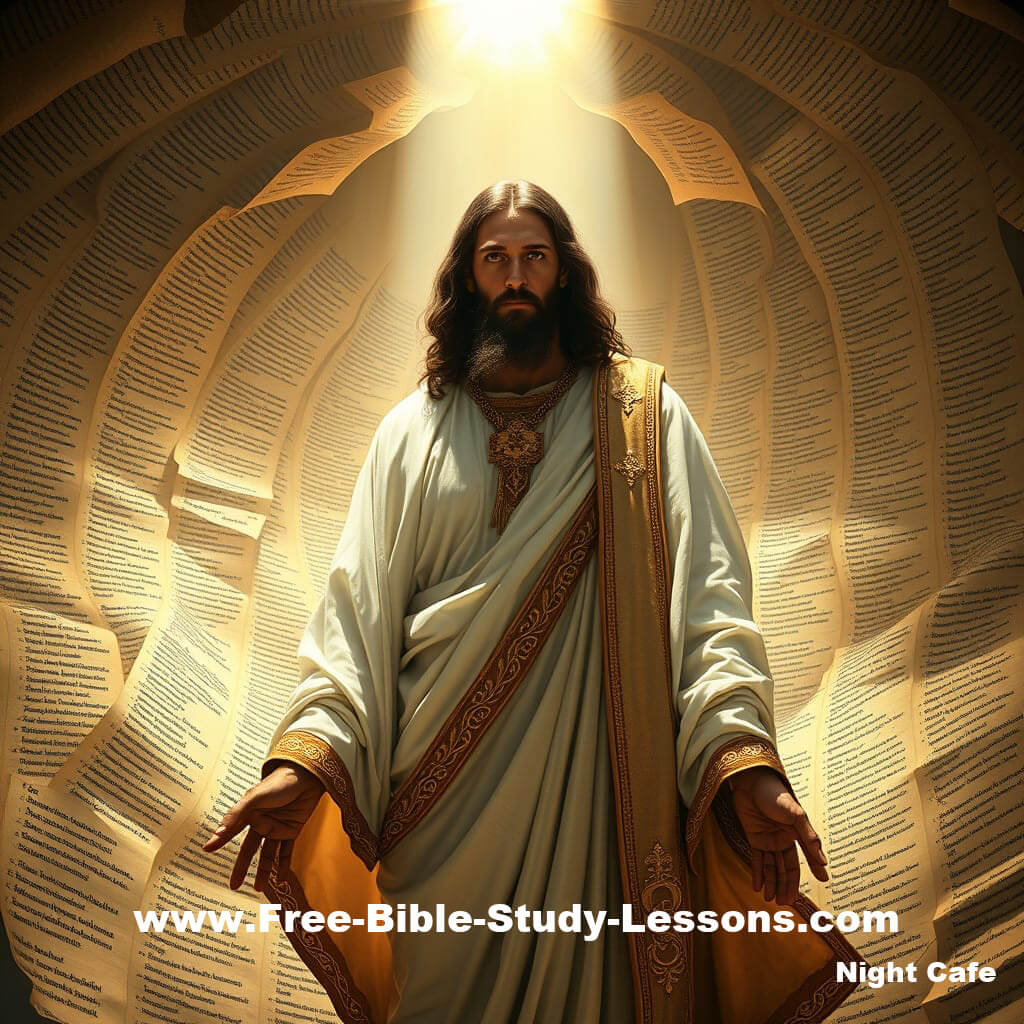| site search by freefind |
- Home
- Bible Streams
- Difficult Verses
- Contradictions in the Birth Story of Jesus
[If you purchase anything on this site, I may make a commission. Disclosure Policy]
Contradictions In The
Birth Story Of Jesus
Are there contradictions in the birth story of Jesus that destroy the credibility of Christianity? Why are Matthew and Luke so different in their accounts? Either the Bible presents us with a truthful account of events on every point, or it is not trustworthy on any point. Before we deep dive into alleged contradictions, let's make sure our feet are on firm ground.
There are four Gospel accounts about the life of Jesus Christ, written by four different people. None of the accounts is written as a biography. A biography would tell us Jesus’ life story, yet we only know of one incident in His childhood after infancy. His life before His baptism around the age of 30 is shrouded in mystery. A lot of things we would like to know, but we aren’t told. What was it like growing up in a family with Jesus? How and when did His adoptive father die? Was Jesus a good businessman? How did he deal with grumpy customers? If the Gospel writers had intended to give us a biography, they would have filled in these gaps. Our curiosity would have been satisfied, but we would have gained no additional practical knowledge. God doesn’t waste time with idle curiosity.
Sitemap -
Newsletter -
Statement Of Faith -
Donate
Follow us on social media for daily Scripture comments and more at MeWe, Facebook or YouTube.
Mark And John
Each Gospel author, under the inspiration of the Holy Spirit, chose the events in the life of Christ that proved Who He was, what He accomplished and the point they were focusing on in their presentation. Only two of these accounts mention the birth of Jesus. Mark and John ignore all the events in the life of Jesus before His public ministry was launched with His baptism.
Mark was probably the first Gospel written and is the shortest. He wanted to get the basic facts recorded that pointed to Jesus as God’s Son. His primary source of information is believed to be the Apostle Peter. John was most likely the last gospel written and saw no reason to add to what Matthew and Luke had already written about the events of Christ’s birth.
Matthew And Luke
Neither Matthew nor Luke were eyewitnesses to the birth of Christ. Matthew was a disciple of Jesus and knew from Jesus, Mary and others the events surrounding the birth of Jesus. Luke was a physician who was the travelling companion of the Apostle Paul. In writing his Gospel, he functioned as a historian and investigator. He had a more scientific interest in knowing how and why things happened as they did. He would have interviewed Mary and others who were eyewitnesses as he pieced together the facts and eliminated any rumours.
Matthew's Jewish Focus
Matthew and Luke had different target audiences. Matthew was writing to Jewish Christians. Naturally, he focused on things that were important to them. The Jews kept detailed genealogies and knew the Messiah must descend from King David. Because of this, Matthew emphasizes Joseph while Luke barely mentions him, although Luke’s account is much longer.
Matthew traces Joseph's lineage from Abraham through King David down to when Jesus was born. He then shows that although Jesus was not Joseph’s physical Son, He was born of a virgin and had no earthly father. Joseph then became the legal father of Jesus, giving Jesus a legitimate claim to a heritage from King David.
In keeping with the focus on a Jewish audience, Matthew tells us about the visit of the Gentile wise men, which would have shown to his first-century readers that even from the beginning, the Messiah’s outreach was intended to be international. He points out Herod’s plot to kill the young Jesus and how they escaped into Egypt. Matthew carefully observes how these events fulfilled the prophecies with which his readers were very familiar.
One criticism against Matthew is that no other historian mentions this murderous act of Herod. Herod was a jealous and vicious man who murdered anyone he thought was a rival or who opposed him. The death toll included many family members, including three of his own sons and his favourite wife. When this cruel man was nearing death, he had the leading citizens of Jerusalem confined. He gave orders that upon his death, they were to be executed so that the people would have a reason to mourn his death. Fortunately, this order was not carried out. So, it is not surprising that the murder of a few infants in a town with a population of between 300 and 3,000 escapes the notice of historians not concerned with the life of Jesus.
Luke's Gentile Focus
Luke addresses his gospel to a man called Theophilus. Both Luke and Theophilus were Gentiles, and Luke talked about things of interest to Gentiles. He goes into great detail about the events leading up to the birth of Jesus. He explains about the temple and legal activities that his Gentile readers would not have been familiar with. And while Matthew simply tells us that Jesus was born of a virgin, Luke explains it in greater detail.
Contradictions In The Birth Story Of Jesus:
Strength Or Weakness?
Critics complain about the differences in these accounts and the alleged contradictions, but this is actually their strength. As any seasoned criminal detective can testify, people need to be kept apart whether they are suspects or witnesses. Everyone sees and experiences things differently. It is easy, even if unintentional, to be influenced by someone else's statement. For example, witness one may say the suspect wore a black toque. The second witness may have thought there was a red stripe on it, but because the first witness didn’t mention it, they may omit that detail as unimportant or mistaken. But the fact the first witness didn’t mention it doesn’t mean it wasn’t there. Perhaps he didn’t notice it, didn't think it was necessary, or couldn’t see it from his line of sight. A third witness may not have noticed the toque at all but did observe that the suspect was wearing expensive brand-name sneakers because the witness had a similar pair. In fact, if the witnesses or suspects all give precisely the same story, the police immediately suspect collaboration or conspiracy.
Other than the fact Matthew and Luke recorded different events associated with the birth of Christ, is there anything in their accounts that is contradictory? If there is a true contradiction, then at least one of them had to be mistaken, if not fraudulent. It would also mean the Bible could not be the inerrant Word of God.
There are two alleged contradictions. Everything else recorded by Matthew and Luke can fit together naturally. What are these alleged contradictions?
Contradictions In The Birth Story Of Jesus:
The Genealogies
The first one has to do with the genealogies. Matthew starts with Abraham and works his way down through King David to Joseph. Luke begins with Joseph and goes back through history all the way to God, Who created Adam. Matthew states that Joseph's father was Jacob, while Luke declares his father to be Heli, and there are other differences.
Did Luke, as a Jewish outsider, get his facts mixed up? Joseph can’t have two fathers. Although there is some disagreement, most scholars believe Matthew traces Joseph’s lineage. This would be the legal proof that Jesus met the Messianic qualification of being a descendant of King David. Without this proof, any other claims to be the Messiah would be meaningless. Luke is more focused on Mary and is believed to have traced her family tree. This shows that Mary also was a descendant of King David. Jesus was a descendant of King David from both His adopted father’s and His mother’s sides of the family.
This explains both the similarities and differences in the family lines, but it doesn’t explain why Joseph is given two different fathers. Since Matthew is tracing Joseph’s legal line, he gives the name of Joseph’s birth father. In tracing Mary’s family tree, Luke uses Joseph’s father-in-law’s name. In the close-knit Jewish community, both men were fathers to Joseph and his family.
Contradictions In The Birth Story Of Jesus:
Where Did They Live?
The final alleged contradiction has to do with where Joseph and Mary lived after giving having Jesus. Was it Bethlehem or Nazareth?
In Matthew chapter 2, verses 8 and 11, we read: “He [Herod] sent them [the wisemen] to Bethlehem and said, “Go and search carefully for the child…On coming to the house, they saw the child with His mother Mary…” [NIV]
The familiar Christmas scene with the wise men at the manager is historically wrong. Most likely, the wise men appeared between one and two years after Jesus was born. We see this because Herod wanted to kill all the male children two years old and under after inquiring when the wise men saw the star. The wise men likely prepared and then began their journey when Jesus was born, but travelling long distances was time-consuming in the ancient world. Also, notice that Joseph and Mary are living in a house when the wise men find them; they are not in a stable. Matthew definitely says the house was in Bethlehem.
But in Luke, chapter 2, verse 39, it says: “When Joseph and Mary had done everything required by the Law of the Lord, they returned to Galilee to their own town of Nazareth.” [NIV]
Within the first two months of Jesus's birth, Joseph and Mary would have taken Him to Jerusalem for Mary’s purification rites. This was long before the wise men appeared, yet Luke states they returned to Nazareth.
If we did not have Matthew’s account of Herod and the wise men, we might assume that Joseph and Mary returned immediately to Nazareth. Luke, however, does not say they went immediately to Nazareth, only that they ended up living in their hometown. Matthew’s account lets us know that it was several years after the purification ceremony that Joseph and Mary began residing in Nazareth. There is no contradiction; just two historians give different perspectives on the same event.
The True Purpose
Jesus was the God-Man born to die for the sins of the world. All four gospel writers devote considerable space to the death and resurrection of Jesus Christ. On this event, the destiny of the world and everyone who has or will ever exist hung. Without the death and resurrection of Jesus Christ, His birth would have been meaningless. Nevertheless, we are grateful to Matthew and Luke for drawing back the veil and letting us see the miraculous events of our Saviour’s birth.
Follow us on social media for daily Scripture comments and more at MeWe, Facebook or YouTube.
Sitemap -
Newsletter -
Statement Of Faith -
Donate
Sign up for our free monthly newsletter or take one of our free Bible Study courses.
Please note: We no longer have the commenting feature [maybe again in the future]. Joshua Institute students who have questions or comments on their courses can use the contact button and mention the course name and lesson number in the email. Thank you. Glenn

Privacy - Disclosure




